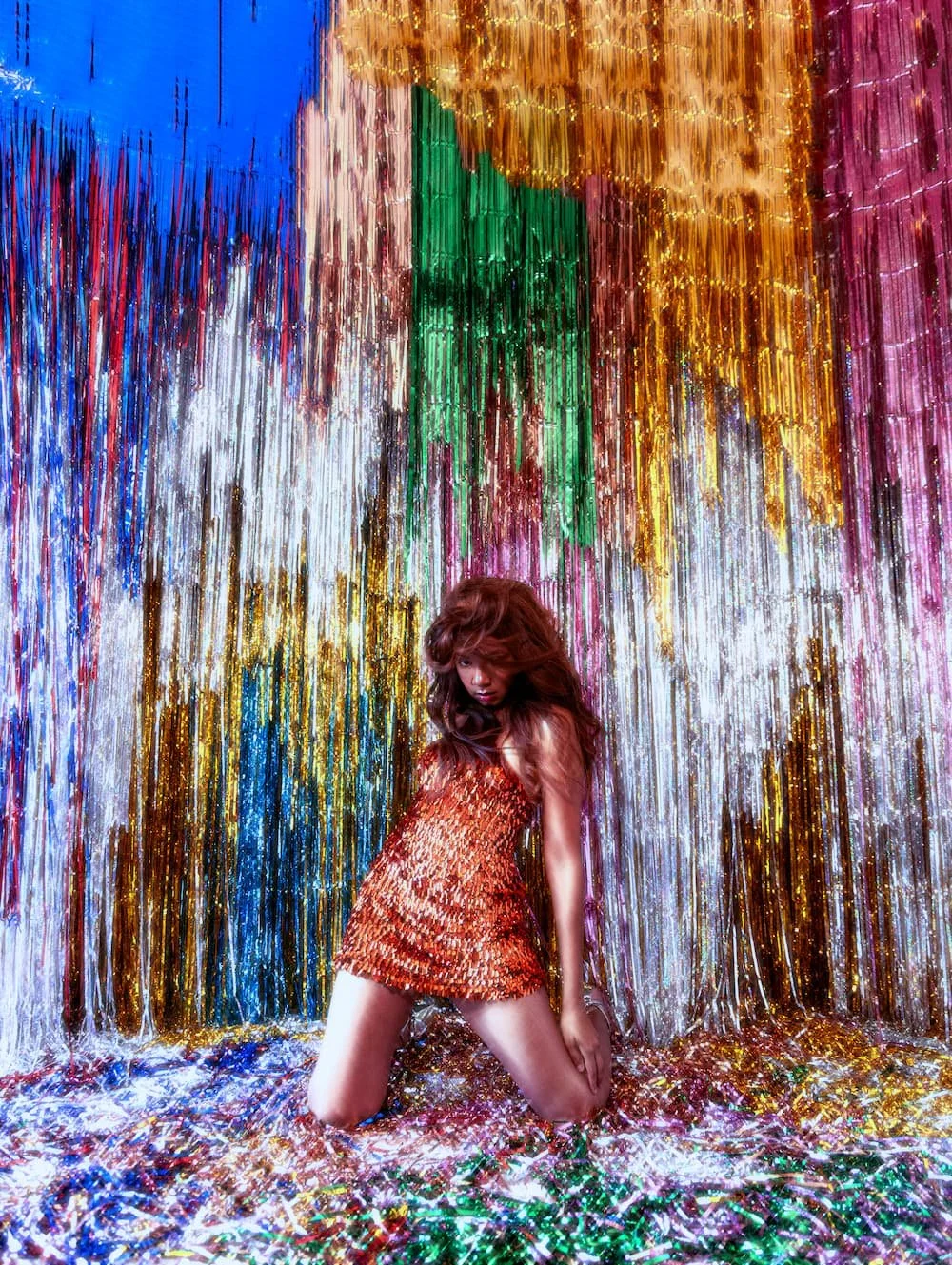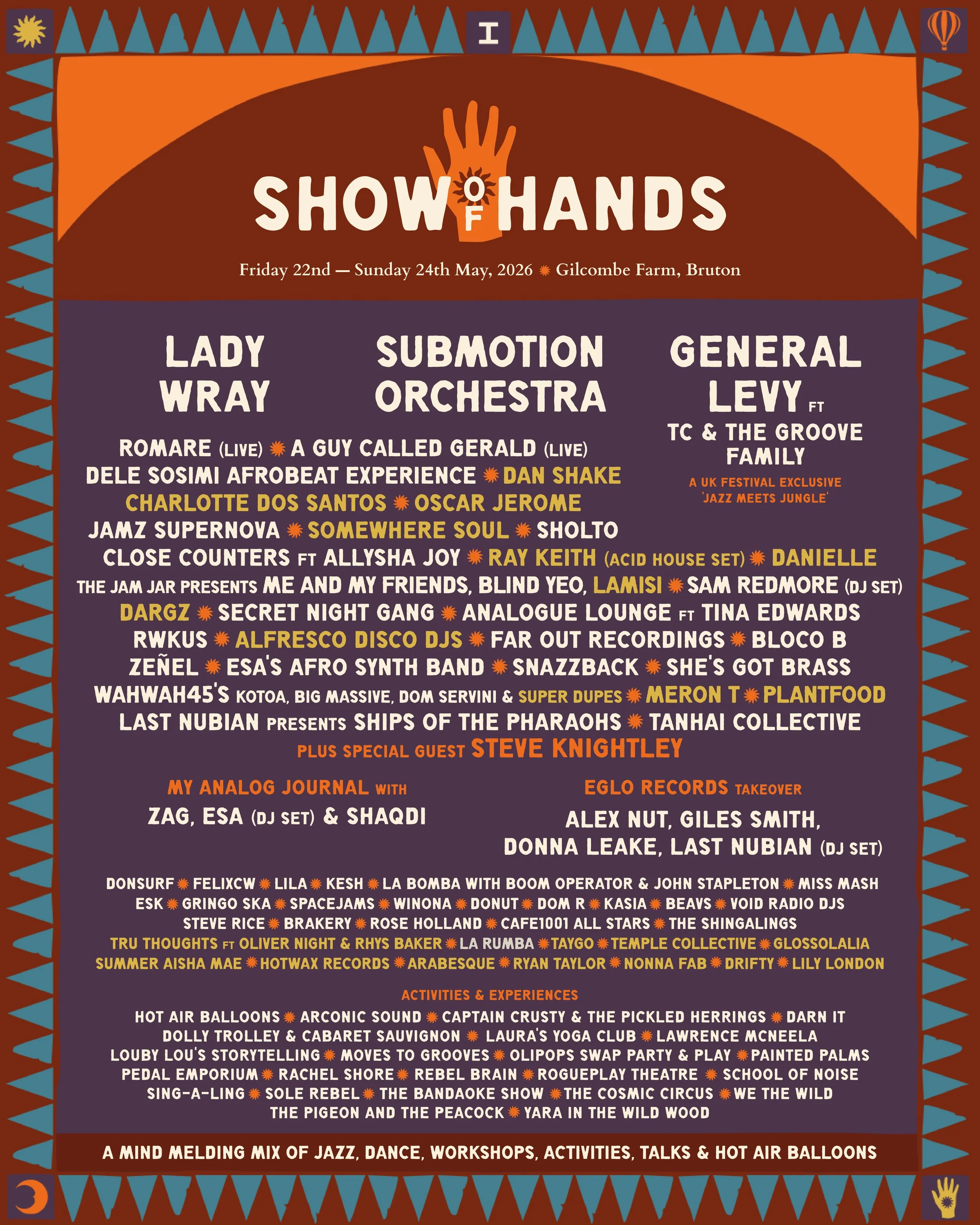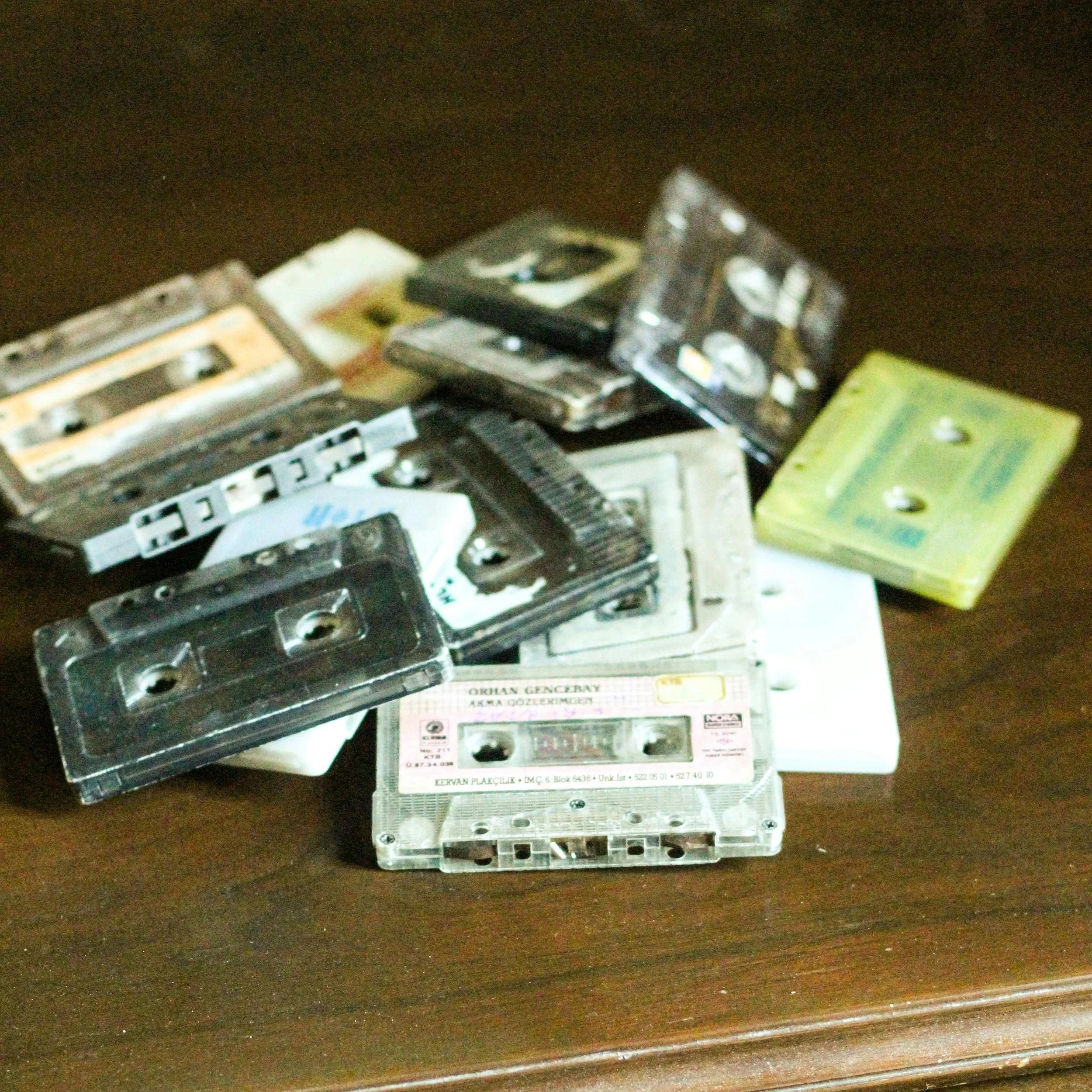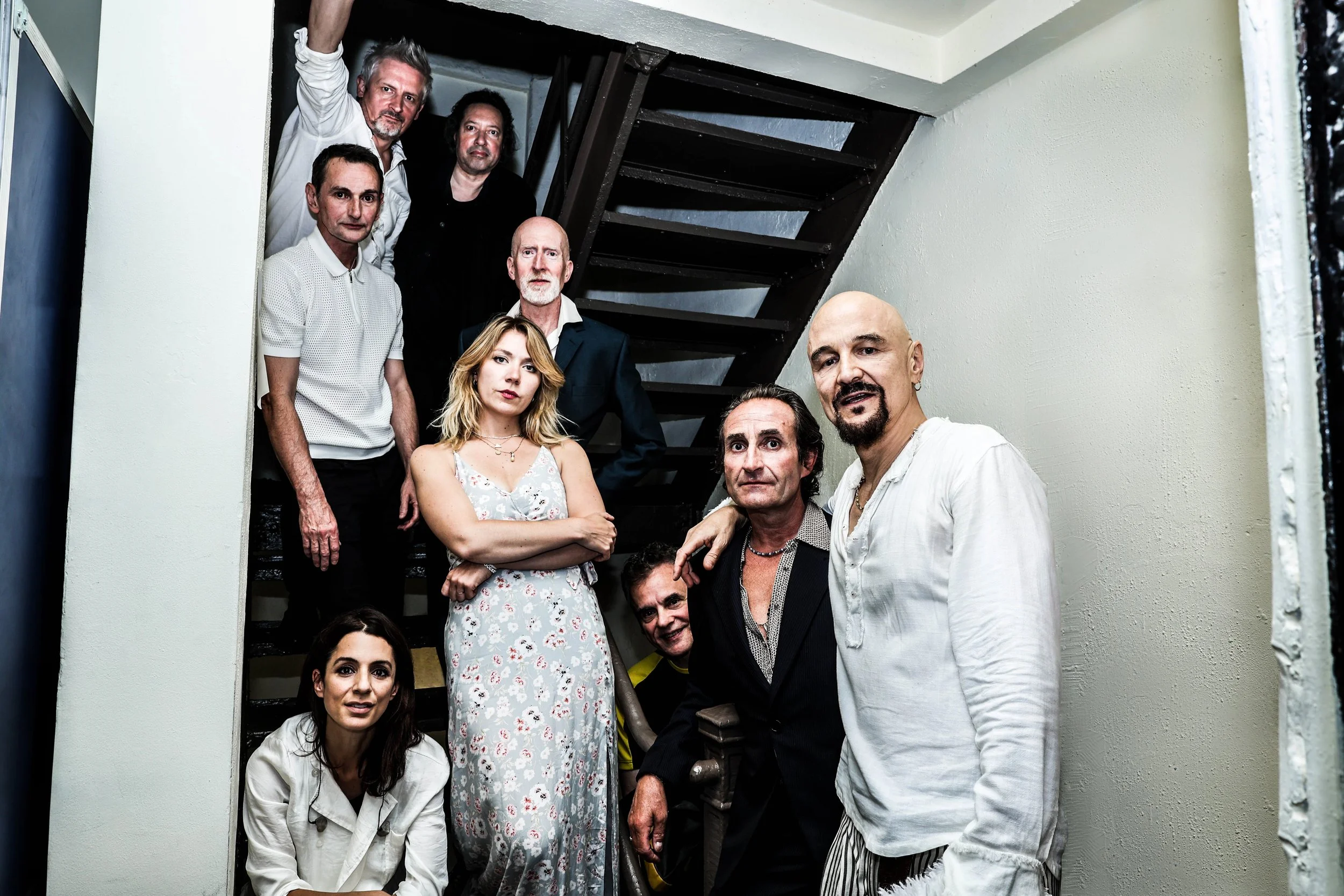Talking to: Don Letts
© Raymond Thompson Jnr
If you know your UK music scene, the history of Black British culture, or have any interest in the subcultures which sprang from the socio-political unrest and subsequent explosion of creativity in the music and fashion scenes in the late 70s and 80s, you know who DJ, filmmaker and videographer Don Letts is.
A first-generation Black British man who grew up with the ever-present threat of racism, police harassment and violence in London during the 60s and 70s, Letts found himself at the epicentre of the emerging punk movement in the late 1970s. Don Letts was central to the crossover between the rasta and punk scenes, and later their cross-fertilisation with the burgeoning NY hip-hop scene, which created something completely new and exciting which has influenced the sound of UK alternative music ever since.
Rebel Dread, released in cinemas across the UK this week, tells this story. It follows Don from his childhood, his introduction to punk through his friendships with The Clash, Sex Pistols, Vivienne Westwood and Malcolm McClaren, to his journey to becoming a celebrated film-maker and videographer, as well as DJ and musician. But it’s about much more than that. In the words of Rolling Stone magazine, Rebel Dread ‘continues to blaze an inspirational trail’ - it’s about searching for a sense of belonging, multicultural Britain and the magic that can happen when creativity springs from dissent - a true punk attitude.
Ahead of the film’s national release on 4th March culture editor Kerry Mead caught up with Don Letts to discuss the film in more detail, what he is most proud of out of his achievements, and why adopting a punk attitude is just as important now as it was then.
Rebel Dread, through candid interviews with Don and other names involved in the cultural landscape of 70s, 80s and 90s London, spliced with illuminating and fascinating video and film footage, reveals what it was like being part of such an important era in UK cultural history. Through his obsessive love of music of all different genres from childhood, we follow Don on his journey to when he found himself hanging out with the musicians and cultural influencers who were the epicentre of the growing punk scene in London. When he started DJing at The Roxy, the birthplace of punk (playing dub as there were no punk records released yet), Don and some friends decided to make a film about the punk scene. This led to his lifelong love of film-making, which has led to him not only making and directing award-winning films but also to his creation of a huge chunk of the most memorable and celebrated music videos, for artists such as Bob Marley, The Clash, Musical Youth, Elvis Costello and Ice T.
I was fascinated to find out how it felt to be in front of the camera for Rebel Dread when he is used to being the one behind it; “So it’s been quite torturous, I'm not gonna lie … I'm not used to having a spotlight shone on me, I like to manoeuvre in the background. I spilt my guts for my book that came out last year, There and Black Again, I spilt my guts for this film. And also, I don't like talking about stuff that's in the past; I like moving forward, you know? I didn't really get it when they said they wanted to make a film of my life but I guess I've got to own it now.”
Don with his collection of Beatles memorabilia.
One thing Rebel Dread proves is that Don Letts’ packed and trailblazing life is actually very much film-worthy. At the end of the film, Don says “Most people come and go through life on this planet and don’t even fucking know they’ve existed. I just suppose I never wanted to be one of those people”. The film tracks, via London, New York, Jamaica and back again, how he has touched every corner of the UK music scene, working with or rubbing shoulders with everyone from Bob Marley to Paul McCartney, via The Clash (he formed Big Audio Dynamite with Mick Jones in New York after The Clash split), David Bowie and Sly and Robbie.
But who is the one star that made Don stop and think ‘I can’t believe I’m in the same room as this person!’?
“I made a film for Paul McCartney about six years ago. When I was a kid, I was a massive Beatles fan, I mean, I was fucking bonkers for them. I got to sit down and make this film and spent about two weeks with him. I remember when I was talking to him, how it made me feel inside. I was almost crying because it reminded me of the power of music to change your life, whereby I could become a filmmaker and end up in a room with one of my childhood heroes. Music can do that, it works, folks. I'm living proof.”
When asked about what it means for him to get his story out there in Rebel Dread we talked about the punk attitude that propelled him on his journey, and which he believes is essential for younger people to still embrace today:
Don Lets in London in the 1970s, as featured on the album artwork for The Clash’s Super Black Market Clash.
“Don Letts didn't come out of a void, nothing does, and I guess, if anything, I'm just maybe trying to pass on a bit of the energy that made me who I am. I think maybe if [the audience] walk away from the film or the book with a bit of punk attitude, job done, and I'm not talking about safety pins and Mohawks, folks.
“I think you're going to need a bit of that going into the 21st century. Especially the young people because back in my day (I can say stuff like that at 66 years old) there were ways you could operate, manoeuvre, and survive, but after the digital age, it's like they've pasted over all the cracks in the pavement. I do empathise with the young; in London, things are so dreadful that most of the young people are living with their parents until they're thirty!
“Back in the day, those style-driven subcultures that were so prevalent in the last half of the 20th century were created because there was nothing else. Music and style were all we had to find our tribe and status, and they became absolutely vital. I think we turned that combination into an art form! The 21st century comes along; the internet, the digital age, and everything becomes a lot easier.
“It's taken them a little while … but [young people] have finally got off their asses and got involved beyond just doing a swipe on your goddamn phone, because that's not going to change anything. You need to get proactive. Now, you are living with the prospect of living with your mum till you're thirty or having a student debt until you're what? Sixty? I think that's finally given them a kick up the ass really because it's their future. I've had mine, I've had my time and that's why I can't really talk about the future … It's theirs man, it's theirs for the taking. All this stuff about missing punk rock; they've not missed anything. Go out and create your own soundtrack!”
In the film, the power of dissent and subcultures is explored in great depth and Malcolm McLaren discusses how Don Letts helped him to see that the subcultures didn't happen in isolation and that they have a shared heritage. I asked Don his opinion on what that shared heritage is exactly, and how can an understanding of it help people to enact change now? He tells me that all subcultures like rastas and punks were “on the streets and the playgrounds and on the dance floor whilst the politicians were scaring the old white folk. It was culture that united the youth.”
“In my time, it went back to that old combination of style and music. We used that stuff as a tool for social change. I'm a great believer in using culture as a tool for social and personal change. And I don't think that dynamic will ever change. Even if you are buying it off of the internet!”
Don Letts on the New York subway, 1981.
Rebel Dread follows Don Letts’ life right up to the present day, as a father and grandfather who, whilst still very much involved in the music scene, has taken a step back from the rebellious frontline. Here is what he had to say about getting older:
“It’s funny because up until recently I just owned it, there is that old adage about ‘you're only as old as you feel’, right? But there comes a time when you're as old as you bloody well are, yeah? I was deejaying in Bristol last night until two in the morning; I can feel it now, believe me!” Being in Bristol myself, and discussing different cultures and backgrounds being married through music, there was only one other reggae DJ the conversation could turn to, DJ Derek, and it turns out Don was DJing at a party to mark what would have been DJ Derek’s 80th birthday.
“It's funny that we touched on Derek because he's a prime example of someone that used culture to bring people together. You can't get a better example than Derek. He travelled up and down the country with his reggae mini-discs turning people on to some wicked baselines and spreading the love”.
I asked him if he could look back now and say what he thinks is his biggest achievement:
“That's something that I can't say, that's for others to say. Things I'm proud of, I can tell you. My first feature film Dancehall Queen. It was a massive smash in Jamaica and for Jamaican communities around the world. I was inspired to make a film after seeing Jamaica's most famous film, The Harder They Come. I [thought] I'd like to do something like that. Fast forward to the punk rock movement with that whole DIY thing, picking up a camera and reinventing myself as Don Letts the filmmaker, and then in 1997, I got to make this film Dancehall Queen!
“I'm also really proud of the video Pass the Dutchie by Musical Youth, because I realise with hindsight that it did the same for the Black British generation as Millie's hit, My Boy Lollipop, did for my parents' generation; it gave them a sense of pride, it brought them together and it was almost a statement of intent, of ‘we're here and we're going nowhere.’ The Musical Youth video seems to have had the same impact for my generation; this Black British thing rolls off the tongue now but took a long time to mean anything. I think Pass The Dutchie might have been the beginning of that coming together, along with at the end of the 80s the advent of bands like Soul II Soul. That's when being Black and British finally meant something to Don Letts.”
And my final thoughts? Rebel Dread is an absolute must-see film for anyone with an interest in UK music, the roots of subcultures and rebellion, and the hunt for a sense of belonging which comes hand to hand with the diasporic Black British experience.
You can watch Rebel Dread at cinemas across the UK and it will be streaming on Bohemia Euphoria and Curzon Home Cinema from March 4th, before a wider release on other digital platforms at the end of the month. There are special screenings of the film with live Q&A sessions with Don Letts afterwards at cinemas across the UK from Wednesday 2nd March, including Bristol, Nottingham, Manchester and Sheffield and a special gala screening at BFI Southbank on Thursday 3rd March. Find out about other dates here.










